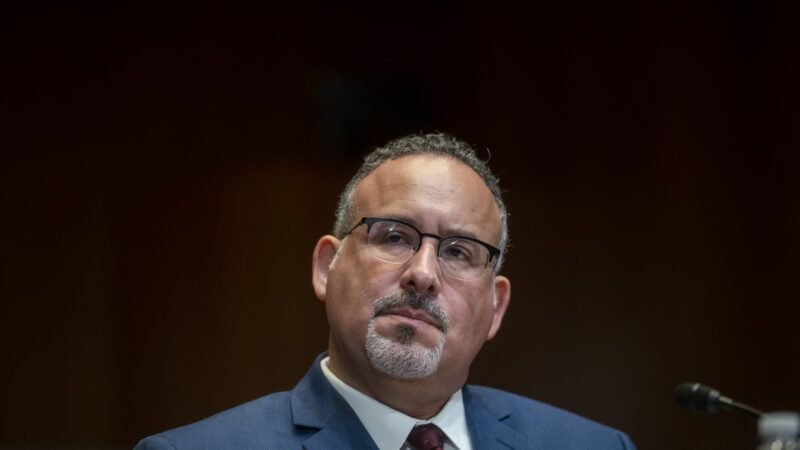Federal Court Blocks Biden's Income-Based Student Loan Forgiveness Plan
The SAVE plan would have dramatically reduced the amount borrowers were required to pay back before receiving forgiveness—and cost taxpayers almost $500 billion over the next decade.

The Biden administration's attempt to remake the federal student loan program has experienced a major setback. On Thursday, the U.S. Court of Appeals for the 8th Circuit blocked the SAVE plan, an income-driven repayment (IDR) plan that would have dramatically reduced the amount student loan borrowers were required to pay back before receiving forgiveness.
While a pair of federal judges struck down parts of the program in June, Thursday's decision completely blocks the program.
In 2022, Biden announced a plan to forgive up to $20,000 in federal student loans for borrowers earning less than $125,000 and couples earning less than $250,000. However, the plan was swiftly blocked in federal court and eventually halted by the Supreme Court.
But even if Biden couldn't enact blanket student loan forgiveness, many of his administration's other changes to the federal student loan program went unchanged. These reforms—most notable among them, the introduction of the SAVE plan—rapidly increased the amount of loan forgiveness offered to borrowers.
Under the REPAYE plan, the most popular IDR plan in use before Biden's changes, borrowers' monthly payments were set at 10 percent of their discretionary income, calculated as earnings above 150 percent of the federal poverty level. Borrowers then received forgiveness after 20 years of on-time payments (or 25 years for graduate borrowers).
Under the SAVE plan, borrowers were only required to pay 5 percent of their discretionary income, now defined as earnings above 225 percent of the poverty rate. Borrowers would only have to make 10 years of payments before forgiveness if the balance is less than $12,000. In all, these changes are estimated to have contributed $145 billion to the 2024 budget deficit alone.
So far, Republican-led states have mounted two separate lawsuits challenging the SAVE plan, arguing the plan is an illegal exercise of executive spending. In June, federal judges based in Kansas and Missouri released injunctions collectively blocking the Biden administration from forgiving more loans under the SAVE plan and slashing borrowers' monthly payments. On Thursday, the remaining provisions of the plan were also blocked by the 8th Circuit.
Following the ruling, Education Secretary Miguel Cardona said that the department would place all borrowers enrolled in the SAVE plan in an "interest-free forbearance while our Administration continues to vigorously defend the SAVE Plan in court."
For now, the future of the SAVE plan looks bleak—and for good reason. One analysis predicted that the plan would cost taxpayers almost $500 billion over the next decade.


Show Comments (65)